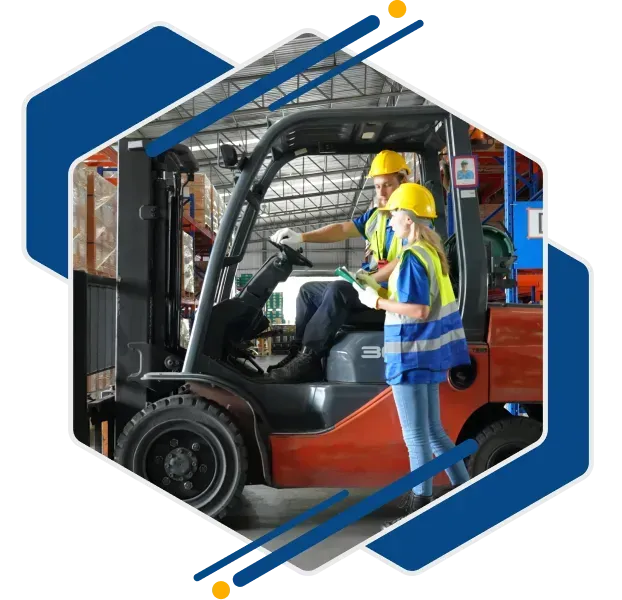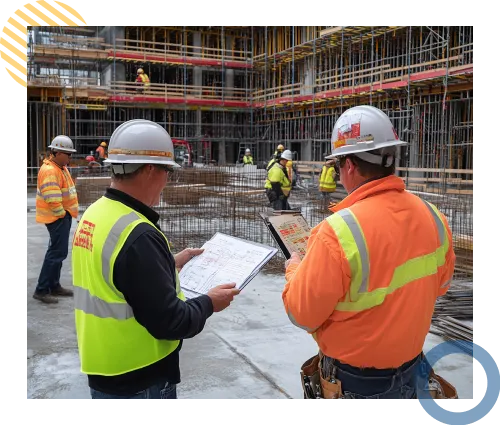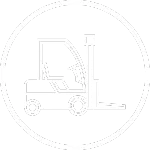Now Offering Spanish Safety Training!

Now Offering Spanish Safety Training!
Specialized Safety
Forklift Training
FSDAVCFEBFEVSDDVFSD
FSDAVCFEBFEVSDDVFSD
FSDAVCFEBFEVSDDVFSD
Specialized Safety - Forklift Training
Expand Your Forklift Operators’ Safety Knowledge

Forklift training teaches workers safe handling, loading, and maneuvering techniques. It emphasizes proper driving, loading, and unloading procedures to prevent accidents. Training includes vehicle inspection, maintaining visibility, and addressing site-specific hazards.
Trainees participate in hands-on exercises to improve compliance, focusing on load balance, clear communication, and the safe operation of forklifts in different conditions. Advanced training covers emergency protocols and risk assessment, preparing workers for unexpected situations. This thorough approach ensures that operators develop confidence, skill, and safety awareness, significantly reducing risks and maintaining OSHA compliance on job sites.

Vital Components of Compliant Forklift Safety Training
Forklift safety training equips workers with essential driving skills, such as steering and maneuvering, to operate forklifts effectively. It covers proper load management, teaching employees to handle loads safely and prevent accidents. The training includes safety inspections, emphasizing daily equipment checks to ensure workers' safety. It highlights correct use of all safety features and ensures compliance with OSHA guidelines, including PPE requirements.
Practical exercises allow workers to master forklift control in confined spaces like narrow aisles, and boost their confidence for real-world applications. They learn safe load management, including stacking materials without causing damage. Drills focus on maintaining visibility when carrying large loads, teaching safe lifting techniques, and preventing strain. Effective communication in busy environments
is emphasized, ensuring operators coordinate with others to avoid accidents.
Continuous assessments measure skill development and knowledge retention, using both written and practical tests to ensure effective application of safety protocols. Feedback from trainers helps trainees refine practices, addressing weaknesses to foster a safer, more efficient workplace. Regular updates align training with the latest safety standards. This process ensures compliance with OSHA regulations and preparedness for industry changes.
Training for Advanced Forklift Skills on Complex Sites

Advanced forklift training equips operators with the skills needed to navigate challenging work environments safely and efficiently. Workers learn to handle equipment on uneven terrain, steep ramps, and tight spaces, maintaining load stability under adverse conditions to minimize tipping risks. This training emphasizes precise maneuvering techniques, speed control, and the importance of understanding the equipment's limitations in complex settings.
Additionally, the program covers the safe handling of hazardous materials, focusing on emergency response protocols and proper PPE usage. Operators gain practical experience managing dangerous loads, understanding how to prevent spills or contamination. They are taught to recognize hazardous material labels and comply with regulations for transporting such materials. This comprehensive approach ensures workers are prepared to face the unique challenges presented by complex job sites.

Through realistic simulations, workers develop the confidence to react quickly and effectively in emergency situations. These simulations replicate real-world challenges, including mechanical failures, sudden load shifts, and environmental hazards like spills or obstructions. By practicing in a controlled environment, operators enhance their problem-solving skills and ensure adherence to safety standards without the risks associated with actual emergencies. This hands-on experience builds muscle memory and preparedness for real-life incidents. Regular training updates keep operators informed about the latest OSHA regulations, industry best practices, and technological advancements, promoting continuous improvement and fostering a culture of safety within the workplace.
Moreover, the advanced training emphasizes effective communication in high-risk environments. Operators learn to coordinate closely with ground personnel, signalers, and other equipment operators to prevent misunderstandings that could lead to accidents. The training covers mastering standardized hand signals, radio communication protocols, and clear verbal instructions to ensure everyone is aligned on operational procedures. By fostering strong communication skills and situational awareness, the training contributes to a safer, more efficient workflow in complex operational settings where teamwork and coordination are essential.
Frequently Asked Questions
Frequently Asked Questions
What does forklift training include, and why is it important?
Forklift training encompasses both theoretical instruction and practical hands-on experience, focusing on safe operation practices, understanding forklift mechanics, navigating tight spaces, and safe loading techniques. It's crucial for minimizing workplace accidents, enhancing productivity, and ensuring compliance with OSHA standards.
Who needs to undergo forklift training?
Any employee who operates a forklift as part of their job duties should undergo comprehensive forklift training. This ensures they have the necessary skills and knowledge to operate the equipment safely and efficiently.
How often should forklift operators be retrained?
OSHA recommends that forklift operators receive retraining at least every three years. Additional retraining should be conducted whenever an operator is involved in an accident or near-miss incident, when workplace conditions change, or when a new type of forklift is introduced.
Can forklift training be customized to specific types of forklifts or workplace environments?
Yes, forklift training can be tailored to address the specific types of forklifts used by a business and the unique challenges of the workplace environment. Customized training ensures that operators are prepared for the specific situations they will encounter on the job.
What are the benefits of investing in forklift training for my business?
Investing in forklift training benefits businesses by reducing the risk of workplace accidents and injuries, improving operational efficiency, ensuring compliance with safety regulations, and fostering a culture of safety. Additionally, it can lead to lower insurance premiums and less downtime due to accidents.
Continuous Assessment Strategies to Avoid Accidents
Ongoing evaluations are crucial for ensuring that forklift operators remain proficient in safety. Regular assessments keep workers updated on new regulations and industry best practices that are constantly evolving. These evaluations focus on refining existing skills, reinforcing safety procedures, and adapting to changing site conditions.
Our process recommends both written tests and practical evaluations, allowing trainers to identify areas where additional instruction may be needed. Workers participate in discussions and provide feedback, ensuring that safety measures are effective in real-world scenarios. This collaboration bridges any gaps in understanding and promotes a shared commitment to workplace safety.
Additionally, safety assessments foster a culture of awareness within the organization. By providing employees with ongoing training, companies can proactively address potential hazards before they lead to incidents. This dedication to continuous improvement contributes to the overall success and reputation of the company.


In addition to formal assessments, regular safety audits are conducted to monitor compliance and identify potential risks before incidents occur. These audits involve thorough inspections of equipment, evaluations of operational procedures, and consultations with staff to uncover hidden hazards. By proactively addressing safety concerns identified during these audits, organizations can adapt training programs and update policies to meet evolving challenges. This proactive approach not only reduces accident rates but also enhances the overall safety culture within the organization, ensuring that OSHA compliance is maintained and that employees operate in a secure environment.
The Long-Term Benefits of Comprehensive Forklift Training
Investing in comprehensive forklift training yields significant long-term benefits for both employees and employers. Well-trained operators are less likely to be involved in accidents, leading to a safer work environment and fewer injuries. This focus on safety not only protects workers but also reduces downtime and maintenance costs associated with equipment damage or lost productivity.Advanced skills training enhances job performance by preparing operators to handle complex tasks with confidence. Employees become more adaptable and efficient, contributing to overall operational effectiveness. Consistent training updates ensure that workers remain informed about the latest safety standards and technological advancements, which is essential for maintaining competitiveness in the industry.
Moreover, comprehensive training ensures full compliance with OSHA regulations minimizing liability risks for employers. Adhering to safety requirements demonstrates a commitment to employee well-being and can positively impact company reputation. A proactive safety culture, fostered through ongoing education and assessments, leads to higher employee morale and retention, as workers feel valued and protected.
By prioritizing forklift training, organizations cultivate a workforce that is skilled, confident, and safety-conscious. This investment not only meets regulatory obligations but also drives long-term success through improved efficiency, reduced costs, and a strong safety record.
Have Questions About Our Services?
Contact us to learn more today!
Have Questions About Our Services?
Contact us to learn more today!





